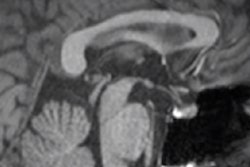As the treatment options for colon cancer have multiplied, it's becoming increasingly important to improve the decision-making process for who should be treated and how to maximize the treatment risk-benefit ratio, according to Dr. Dania Daye, PhD, from Harvard Medical School in Boston.
"Assessment of KRAS mutation status is essential for prognosis assessment and for guiding treatment decisions in patients with metastatic colon cancer," Daye said.
The researchers sought to investigate the association between quantitative tumor MRI features and KRAS mutation status in this patient population. In a retrospective study, the KRAS mutation status was ascertained from the medical records of 52 patients with stage IV colon cancer who had hepatic metastases reported on abdominal MRI. After the largest hepatic lesion was identified and manually segmented, MR radiomic feature vectors were extracted from each lesion using quantitative morphological and texture analysis.
Next, the team used logistic regression analysis to determine if the 50 extracted morphological and texture features were independent contributors for predicting the tumor's KRAS mutation status. Finally, they applied a machine-learning technique to the extracted imaging phenotype vector. After being trained, the model yielded an area under the curve of 0.95 for predicting mutation status.
"Tumor MRI radiomic analysis may aid in noninvasively assessing tumor genetic status and may aid in informing treatment choices and personalizing therapeutic decisions in patients with colon cancer," Daye told AuntMinnie.com.
Stop by this talk on Wednesday to learn more.



















